Mediterranean Diet 101
What Is The Mediterranean Diet?
What comes to mind when you hear the word ‘diet’? I bet you think of all the rules and restrictions placed on your favorite comfort foods, right? Not this time. Surprisingly, the Mediterranean diet is different. The food choices of the Mediterranean countries of Spain, Southern Italy, and Greece in the 1940s-1950s remain the origin of this diet. The main goal of this diet is all about remaining heart healthy. The Mediterranean diet is not about enforcing strict restrictions, although red meats, sugary foods, and dairy are to be limited but do not have to be completely removed.
The Mediterranean diet encourages the consumption of fish, olive oil, unrefined cereals, wine, vegetables, legumes, fruits, and nuts. Needless to say, when a Mediterranean dish is prepared, it is bursting with color, limited in processed foods and meaty sides. The flexibility of the Mediterranean diet allows for low consumption of non-fish meat products. Yet it also extends to the skills, knowledge, symbols, and traditions about:
- How to catch fish
- The skills needed to raise animals
- How to grow and harvest crops
- Why eating with the season is important
- Most importantly... how the meal itself is prepared for the overall health of the individual
It is just awe inspiring! Have you already noticed how the Mediterranean diet’s emphasis is a plant-based approach? It is complemented with healthy fats to include olive oil and omega-3 fatty acids from fish and loads of vegetables. Our tasty Mediterranean diet meal prep recipes will also present you with a variety of inventive ways to enjoy these meals.
What are the benefits of the Mediterranean Diet?
To sum up with one word - rewarding. What’s rewarding? That there are Mediterranean diet recipes out there to bring some of that Mediterranean cuisine to your kitchen! We’re excited to now list a few of the benefits of the Mediterranean diet:
- Increased Heart Health
Exercise alone is insufficient to keep your heart at its best. The healthy fats and omega-3 acids help maintain heart health. No clogging up of your arteries with unhealthy saturated fats from improperly prepared meals. The Mediterranean diet contributes to lowering bad LDL cholesterol. Plus the added benefit of moderate amounts of wine daily (this is also optional). Wow. Heart-healthy, here we come!
- Lowers the Likelihood of certain Cancers
Cancers are caused when our genes mutate or change to create abnormal cells which in turn attack and destroy healthy cells. Cancer cells come about for a number of reasons, such as obesity, smoking, viruses, chronic inflammation, lack of exercise and exposure to carcinogenic chemical compounds. The Mediterranean diet limits processed foods and sugary treats. This contributes immensely to keeping cancers away.
- Increases Bone Strength
One study noted that special compounds available in olive oil may help preserve bone density. In so doing, this increase the rapid increase and maturation of bone cells. Needless to say, osteoporosis is under attack from the Mediterranean diet. And we have the Mediterranean diet recipes to equip you for battle.
- Decreases Chances of Type 2 Diabetes
The Mediterranean diet promotes sugar consumption control. Therefore it would greatly assist individuals in getting their sugar level back within healthy levels. One study compared the Mediterranean diet to a low-fat diet in people with type two diabetes. Those on the Mediterranean diet did far better as they experienced weight loss and better blood sugar levels.
- Memory Boost
Brainpower gets that added boost as the Mediterranean diet is full of all these healthy brain fats. The research speaks for itself! The Mediterranean diet has contributed 40% towards reducing the risk of memory loss and lack of concentration.
What are the risks of the Mediterranean Diet?
Since the Mediterranean diet promotes eating healthy foods in moderation, there are few risks involved. Further, this diet promotes regular physical activity, an appreciation for life and sharing meals with others. Yet there are factors which impact upon the benefits one may get from the Mediterranean diet.
For example, the quantity and quality of the food consumed are the main risks for the Mediterranean diet. This is because the manner in which the food is prepared will also make an impact on its quality. Also, the ability to acquire high-quality, nutrient-rich foods is also a factor for the experience one has.
Top 15 Foods to Eat on the Mediterranean Diet
We know... By now we should hand you a list of the foods which are recommended for this wholesome diet. Without further delay, here are the top fifteen foods we suggest that you eat while on the Mediterranean diet.
- VEGETABLES: These are are a valuable source of minerals and overall satisfied feeling
- Cucumbers
- Eggplant
- Kale
- FRUITS: Whole and fresh fruits are a major element of the Mediterranean diet. They can be eaten raw or made into juices.
- Avocadoes
- Pommergrants
- WHOLE GRAINS - These are an excellent source of minerals such as iron, potassium, and magnesium as well as fiber. Here are a few listed below:
- Pasta
- Oatmeal
- NUTS - It’s always a great idea to have some nuts to snack on. Here is a suggested few you could enjoy:
- Cashews
- Walnuts
- HEALTHY FATS - These can be gained from the use of:
- Olive Oil
- Canola oil
- SPICES - Tasty! Herbs and spices add rich health promoting flavors to your meals instead of just salt.
- Thyme
- Cloves
- FISH - Once or twice a week, you get to savor these fresh fishes. Avoid frying unless you’re using canola or olive oil.
- Tuna
- Mackerel
Top 15 Foods to AVOID on the Mediterranean Diet
Here are our top fifteen foods you should avoid while on the Mediterranean diet. They will simply not do but if you must... limit doing so for special occasions.
- “Extra Sugar” Many of us have enjoyed a sugary treat which left us desiring even more. We couldn’t wait to be able to buy our own sweets. Sigh. Sadly, all that extra sugar is not welcomed with this diet. Natural sugars are welcomed from fruits and vegetables.
- Candy
- sugary sodas.
- Refined Grains. Processed grains should be excluded as they lack in nutritional value.
- white bread
- Refined (regular) pasta
- bagels,
- Foods which are Highly Processed. If it comes in a box…. Nope! Don’t eat it as processed foods aren’t welcomed. Their additives tend to do more harm than good to the body.
- Cereal
- Energy Bars
- Saturated Fats. These foods are among the major contributors to heart disease:
- Margarine
- Butter
- Oils which are Refined. The manufacturing process to extract these oils usually change the chemical structure of the oil.
- Soybean oil
- Cottonseed oil
- Processed Meats. These meats contain a carnival of preservatives and additives which usually bring about avoidable repercussions.
- hot dogs
- bacon
- Dairy Products. These should be limited, although some yogurts and cheeses are allowed in reasonable quantities and not on a regular basis.
- Milk Chocolate
- Ice Cream
Here are a few of our favorite Mediterranean Diet Meal Prep recipes. You can easily create your own Mediterranean feasts:
Mediterranean Breakfast Recipes
- Mediterranean-Style Breakfast Toast
- Mediterranean Frittata
- Mediterranean Scrambled Eggs with Spinach, Tomato, and Feta
- Sun Dried Tomato Egg Cups
Mediterranean Lunch and Dinner Recipes
- Loaded Mediterranean Bowl Meal Prep
- Grilled Halloumi and Watermelon Salad
- Mediterranean Kale, Cannellini & Farro Stew
- Veggie Mediterranean Quiche
- Super Easy Falafel Meal Prep
- Mediterranean Quinoa Bowls with Roasted Red Pepper Sauce
- Roasted Mediterranean Cauliflower Gnocchi & Veggies
So whether you're meal prepping on a budget or trying to focus on Mediterranean recipes, try out one of these recipes and let us know what you think in the comments below. We look forward to your reviews.

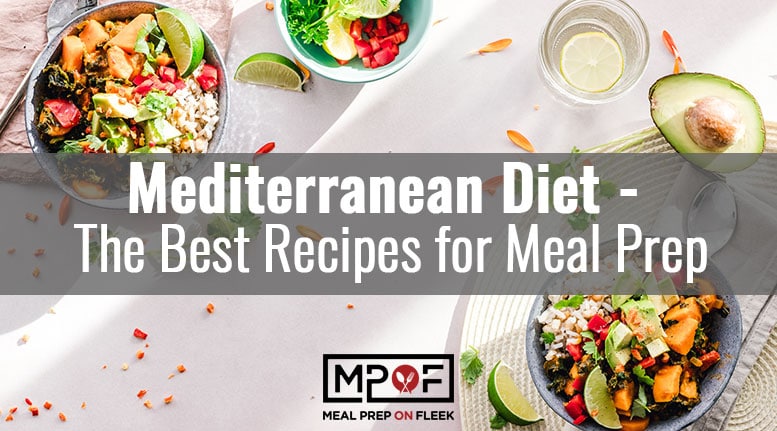
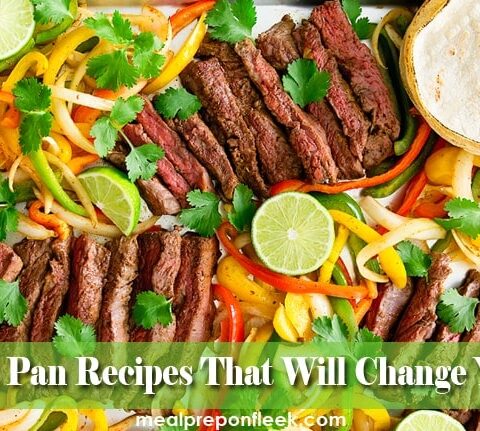
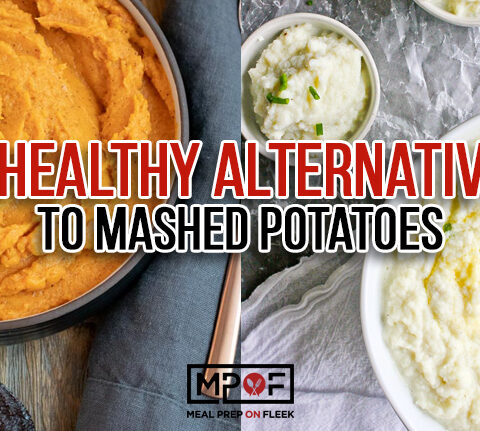
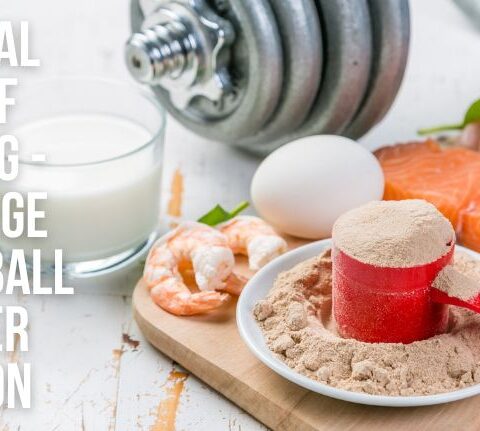
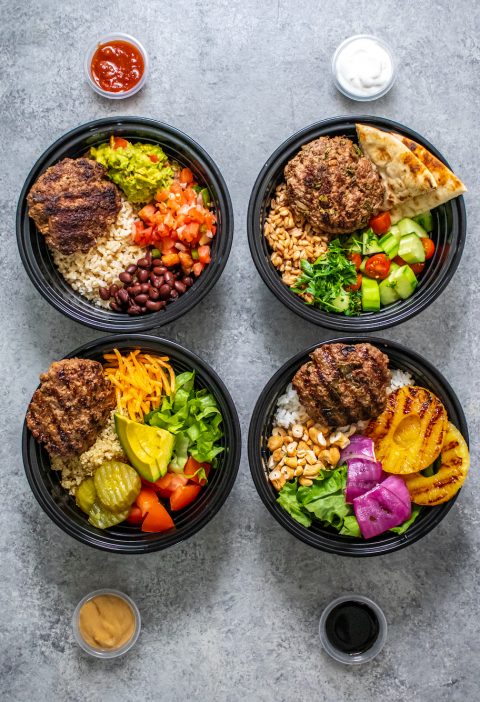


Wonderful read I must say. Very very detailed and informative. A lot to learn from. I'll share this straight away on my facebook timeline!
If bacon is a food to be avoided, then how can a bacon and strawberry breakfast salad be on the Med diet??
Hi Adrienne, Great question! It is recommended to avoid processed meats such as bacon, however, the program outlines that it is ok to have it on occasion. Again, it comes down to your personal goals and nutritional needs. Some people are ok with a little and some avoid it all together. Do what's best for you.